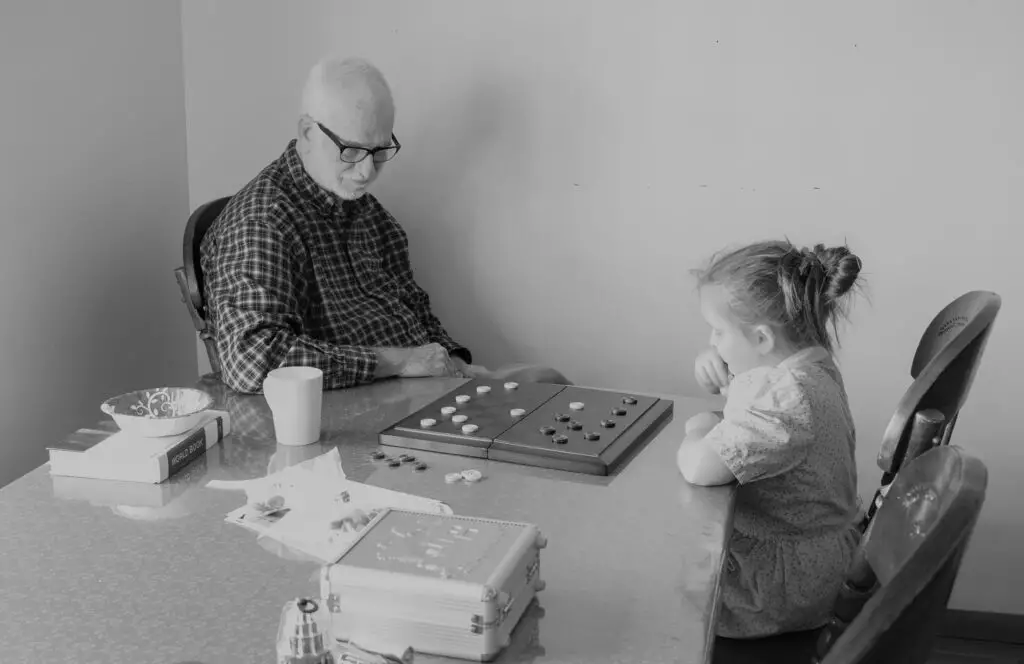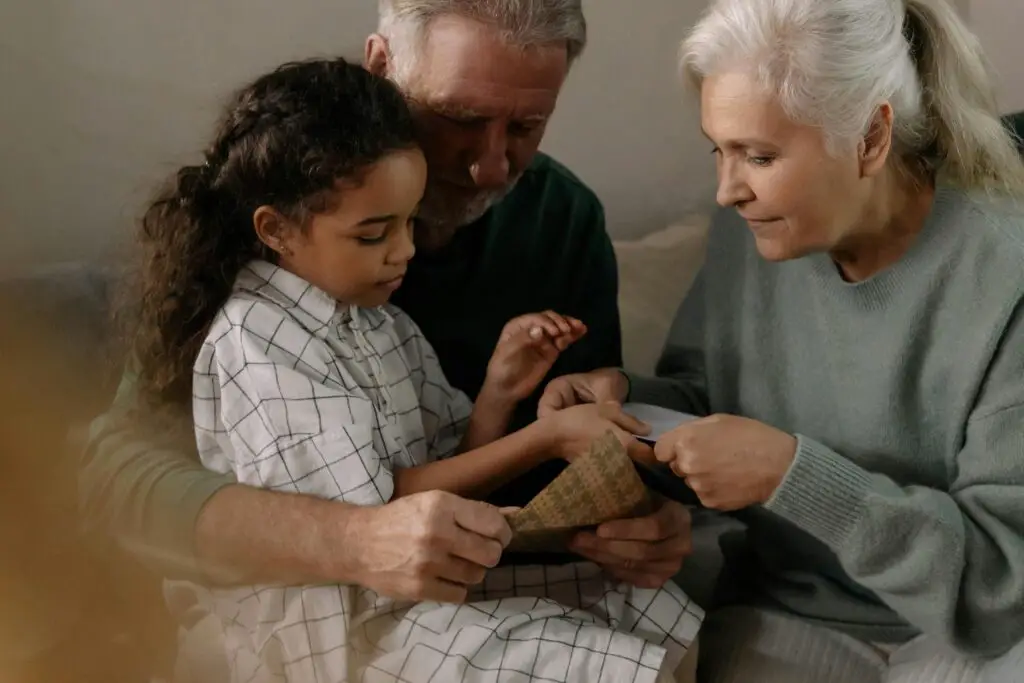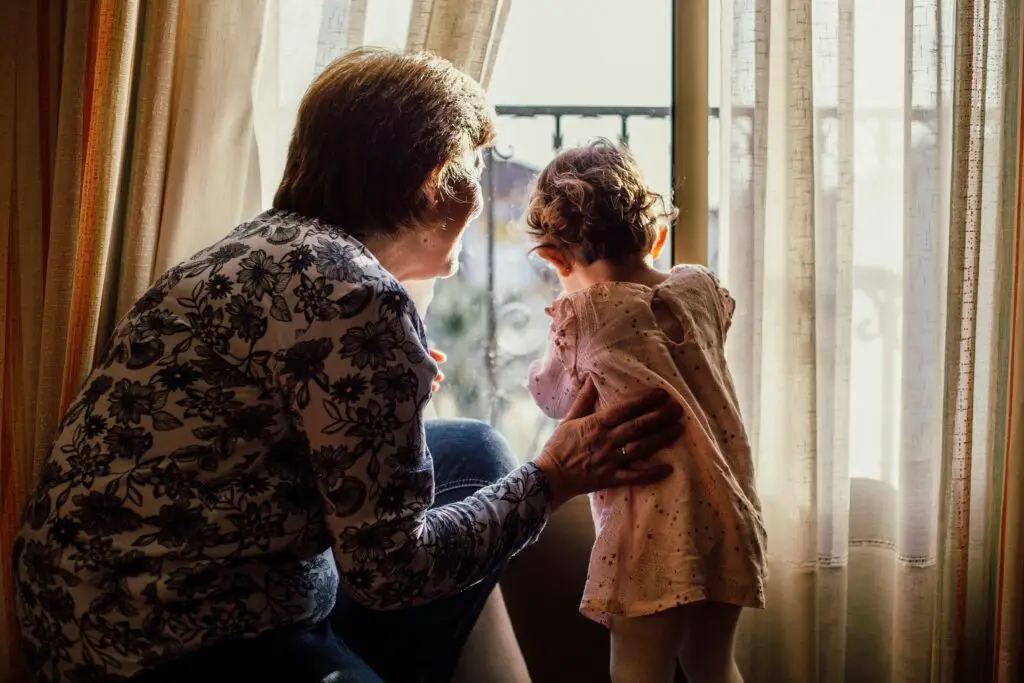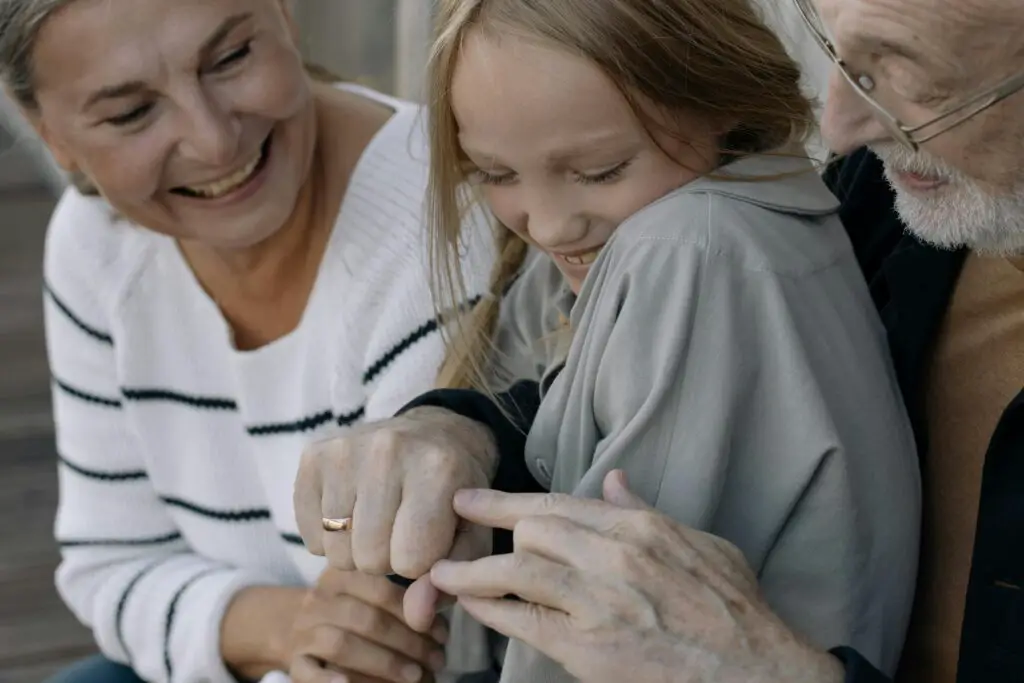1. “You’ve Gained a Little Weight, But You’re Still Pretty”

Grandparents often expressed their love with a sense of blunt honesty. If you were a little heavier than before, they’d let you know, but in a way that made it sound like a compliment. “You’ve gained a little weight, but you’re still pretty” was one of those phrases that left you feeling confused. They were trying to be kind, offering a silver lining to an obvious truth, but it didn’t quite hit the mark. Instead of reassuring you, it made you question whether they were actually calling you out. You almost wondered if they expected a thank you for the backhanded praise says MSN.
In today’s world, that phrase doesn’t come across as encouraging. It sounds more like a subtle jab at your appearance, even though that wasn’t the intention. The idea of complimenting someone on their looks while subtly mentioning their weight gain seems out of place now. We’ve come to appreciate more direct, positive affirmations that don’t leave room for second-guessing shares Southern Living.
2. “You’d Be So Pretty If You Just Lost a Few Pounds”

Grandparents always had their own unique way of offering advice, even when it wasn’t asked for. “You’d be so pretty if you just lost a few pounds” was one of those statements that, at the time, felt like a helpful suggestion. But as we’ve grown older, it’s clear that this isn’t the compliment it seemed to be. Instead of lifting someone up, it places all the focus on appearance, particularly on something that’s not easily changed adds Parents.
In a world that values self-love and body positivity, this kind of remark is outdated. It’s easy to see now that it suggests that beauty and worth are tied to weight, which couldn’t be further from the truth. What was once meant to be a well-meaning nudge now feels like a comment that could easily make someone feel self-conscious about their body says It’s a Southern Thing.
3. “You’ll Understand When You’re Older”

Whenever your grandparents tried to explain something complex, they often finished their thoughts with “You’ll understand when you’re older.” While they likely meant it as a way of calming your curiosity, it left you with more frustration than peace. The assumption that age automatically brings understanding can feel dismissive, especially when you’re young and eager to know more. It was like they were putting your questions on hold until you “matured” enough to comprehend them.
In retrospect, this phrase doesn’t really consider that kids are more than capable of grasping complex ideas when they’re explained well. It also doesn’t account for how irritating it is to feel like you’re not being taken seriously. What you needed wasn’t patience but a real conversation that helped you grow, not a promise of eventual enlightenment that seemed far away.
4. “You’re the Smartest of the Grandkids, But You’re So Quiet”

Being told you’re the “smartest” of the bunch may have sounded like a great compliment. But the follow-up, “But you’re so quiet,” quickly put a damper on the praise. While they meant to acknowledge your intelligence, it subtly suggested that something was wrong with your demeanor. The combination made you feel like maybe your value was tied to more than just your smarts, especially if you weren’t loud or outgoing like some of your siblings.
Today, the idea that silence or introversion is something that needs fixing doesn’t fly. It implies that being soft-spoken is less valuable than being outspoken, when in reality, introverts have their own strengths. It’s important to appreciate people for who they are, not expect them to change for the sake of being “better.”
5. “You Look Just Like Your Dad, But You Have His Temper”

At first, hearing that you looked like your father was a compliment. After all, parents typically like hearing that they resemble their children. But when the follow-up was “But you have his temper,” it quickly shifted from admiration to concern. It was as if the resemblance wasn’t just a physical trait, but something that carried with it a negative quality you didn’t ask for.
In hindsight, this comment feels like it imposed a stereotype that you didn’t deserve. It assumed that you’d inherit not just your dad’s looks but also his anger, and that idea didn’t feel very fair. Now, it’s easy to see how this comment could create unnecessary anxiety about how you might behave, even if you weren’t anything like your dad in that regard.
6. “You’re Not Getting Any Younger”

“You’re not getting any younger” was one of those phrases grandparents often said when it came to milestones or decisions. At first glance, it seems like they were just trying to encourage you to seize the moment and take action. But it always came off as a bit of a guilt trip, implying that time was running out for whatever it was you were debating. It wasn’t the motivational push it seemed to be but rather a reminder of age and the inevitable passage of time.
The problem with this line today is that it suggests age is a limiting factor when, in reality, people are accomplishing amazing things at all stages of life. Whether it’s starting a new career or learning a new hobby, we’ve come to understand that age is just a number. “You’re not getting any younger” now feels like an outdated notion that doesn’t account for the possibility of new beginnings at any age.
7. “You’re Too Sensitive, Just Like Your Mother”

Grandparents didn’t hold back when it came to comparing you to your parents. When they’d say, “You’re too sensitive, just like your mother,” it could feel like a backhanded compliment wrapped in an insult. While they likely intended to convey how much you resembled your mom, it often came across as a critique of your emotional sensitivity. Instead of feeling close to your mother, you might have felt like your feelings were being dismissed.
Today, we understand that emotional sensitivity is a strength, not a flaw. It’s an indication of empathy and awareness, qualities that are incredibly valuable. The idea that being sensitive is something negative no longer fits into modern conversations, where we embrace people’s emotions rather than shame them for them.
8. “You’ll Appreciate This When You Have Your Own Kids”

Hearing “You’ll appreciate this when you have your own kids” was often a reminder that you weren’t fully understanding the struggles of parenthood yet. It might have been a comment on how hard it was to deal with a situation, like helping take care of a younger sibling or doing chores. While they meant to give you a glimpse into the realities of adult responsibilities, it felt dismissive.
The phrase overlooked the idea that people, even kids, can recognize and value hard work and sacrifice. In today’s world, we understand that empathy isn’t just about experiencing something firsthand—it’s also about understanding from a place of compassion. The idea that “you’ll get it later” doesn’t quite land in a time when we’re all encouraged to acknowledge each other’s experiences in the moment.
9. “When I Was Your Age, We Had to Walk Five Miles in the Snow”

Grandparents loved to tell you how much harder things were in their day. “When I was your age, we had to walk five miles in the snow” was a staple of those stories. While it was meant to highlight the hardships they endured, it often made you feel like your experiences weren’t significant. The sheer volume of these tales, framed as something you couldn’t possibly understand, left you wondering whether your problems were somehow trivial in comparison.
What was once a way to show resilience now sounds like a form of downplaying the challenges of today. Sure, the past may have been tough, but that doesn’t mean today’s struggles aren’t valid or important. Comparing struggles across generations misses the point—what matters is that we support each other, no matter the era.
10. “Why Can’t You Be More Like Your Brother?”

This one was a real gut-punch for anyone who didn’t quite measure up to a sibling’s standard. Hearing “Why can’t you be more like your brother?” could leave you feeling like you were failing in some way, even if your strengths lay elsewhere. While grandparents probably didn’t mean it as a put-down, it often felt like a comparison that cast doubt on your individuality. You couldn’t help but wonder if the value they placed on your brother was a sign that you were somehow less worthy.
These days, comparisons like this are seen as harmful and unnecessary. Everyone has their own unique qualities and strengths, and one sibling should never be the benchmark for another. The idea that you need to be like someone else to be good enough doesn’t hold up in today’s world, where we celebrate individuality.
11. “You’ll Grow Into That Nose”

You may have had a feature that your grandparents just didn’t know how to address. “You’ll grow into that nose” was one of those lines that was supposed to reassure you, but instead left you wondering if something was wrong with your appearance. While they may have meant it as a way to help you feel better about something you were self-conscious about, it had the opposite effect. It sounded more like a polite way of telling you that your face wasn’t quite “right” yet.
Now, we’ve learned that all features are beautiful in their own way, and there’s no need to “grow into” anything. Embracing your natural look is something we all work toward, and the idea that there’s a perfect time for someone’s features to finally “fit” is outdated. Today, we focus on acceptance and love for who we are from the start.
12. “You’re So Smart, But You’ll Never Be As Successful as Your Cousin”

Being told you were “smart” was a nice compliment, but when it was followed by something like, “But you’ll never be as successful as your cousin,” it didn’t feel great. That backhanded compliment placed limits on your potential, as though success was a comparison game. You couldn’t help but wonder if your grandparents thought you were destined to fall short. The phrase, meant to highlight another family member’s success, often made you feel like your achievements were somehow less impressive.
These days, success isn’t a one-size-fits-all measure. It looks different for everyone and can be found in countless forms, from career milestones to personal growth. No one should have their potential dimmed by comparisons, especially from people who are supposed to uplift and support them. It’s time we stopped measuring success by others and focused on celebrating our own unique journeys.
